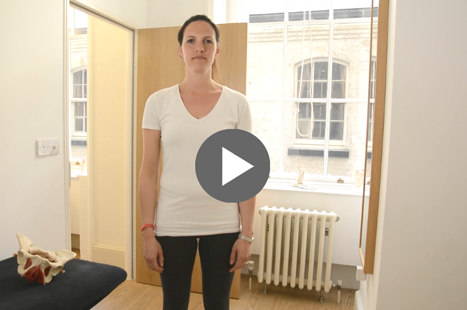Your Pelvic Floor
Many women experience pelvic floor problems at some stage in their lives. Typically women experience problems during and after pregnancy and birth, or later on in life, especially in connection with menopause. There are also a significant number of girls and young women who experience continence and pelvic floor problems from an early age, especially those involved in certain high level sports.
We know that pelvic floor problems can affect your self-confidence, your relationships, your ability to exercise and generally your quality of life. We are here talking about the consequences of not knowing your pelvic floor which can result in conditions like bladder urgency, stress urinary incontinence and pelvic organ prolapse.
NB! You can still be at risk of long term pelvic floor damage or uterus prolapse if the pelvic floor is not rehabilitated or has not recovered properly after childbirth, even without any obvious symptoms.
Take the Pelvic floor test
So as mentioned earlier, we know that a pelvic floor that doesn’t work properly has an effect on your day to day life. You might think that you do not have any pelvic floor problems. This can all change. Menopause, back pain, starting an over ambitious exercise programme, or suffering from a persistent cough are some examples of triggers for pelvic floor dysfunction. Take the pelvic floor test (alongside), you might be surprised and find out that there are pelvic floor issues there.
Does your pelvic floor work properly?
It is important to understand that even if you do not have any current pelvic floor symptoms. This can all change. Menopause, back pain, starting an over ambitious exercise programme, or suffering from a persistent cough are some examples of triggers for pelvic floor dysfunction. These can all be factors then putting you at further risk of pelvic floor problems or on the road to a possible pelvic organ prolapse.
Some women do have slight pelvic floor issues that can present as something just slightly annoying and inconvenient, but other women who suffer more pronounced symptoms, might find that their quality of life is increasingly affected. This can be confidence when playing with the kids, exercising or dancing, frequent toilet visits, relationships suffering through lack of intimacy to pain and depression.
As well as supporting internal organs and providing bladder and bowel control, a healthy well-functioning pelvic floor also plays a very important role in the internal muscular corset. A dysfunctional pelvic floor can compromise our spinal health too. So to have a healthy spine we need to have a healthy happy and effective pelvic floor.
Bodyconnect wants to give you the awareness and knowledge to recognise such problems. We want to teach you protective lifestyle pelvic floor habits, offering a clearer understanding of how harmful habits can lead to pelvic floor problems and how to avoid them. We want to ensure that you have the tools to look after your pelvic floor through all stages of life.

 MENU
MENU